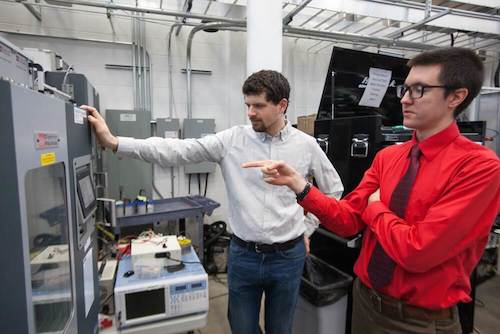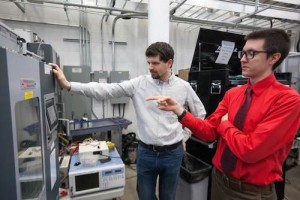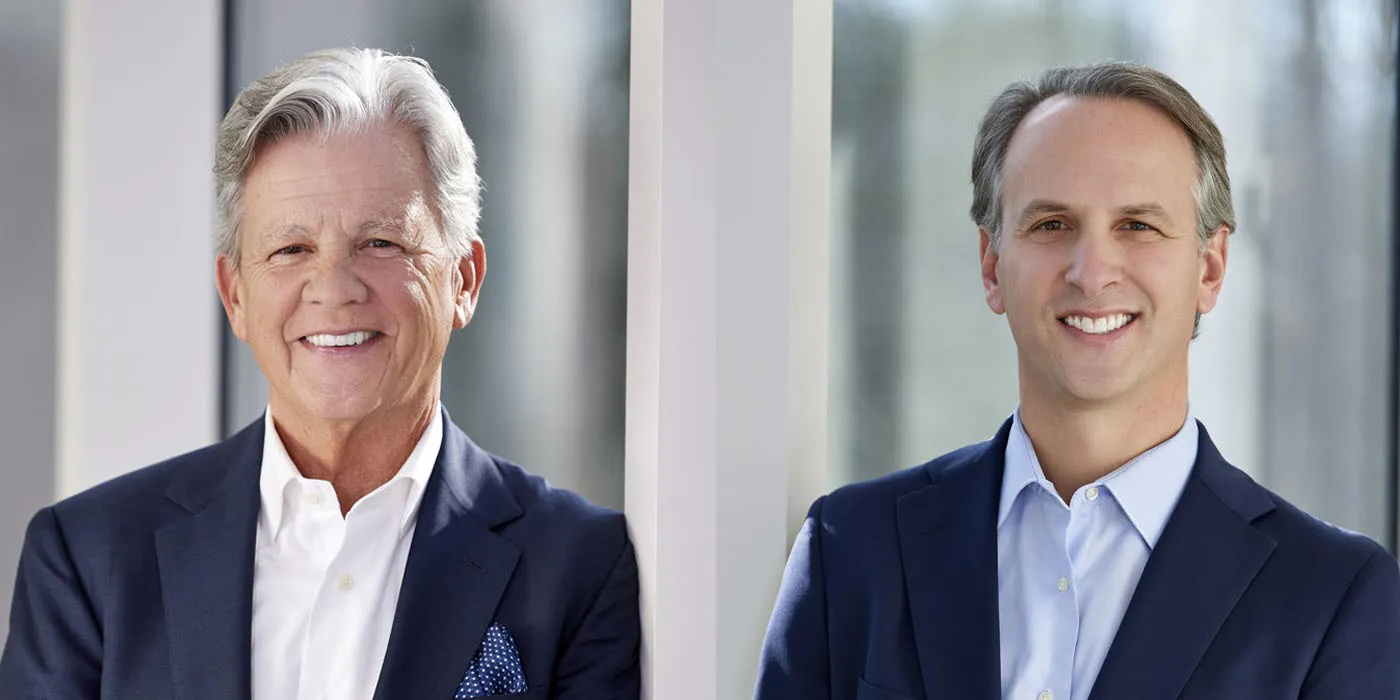MILWAUKEE — Johnson Controls has announced two multi-year research projects at the University of Wisconsin–Madison (UW–Madison) aimed at enhancing the fuel efficiency of start-stop and next-generation battery-electric vehicles. The projects will be funded by Johnson Controls, which includes a Fellows gift of $500,000. UW–Madison graduate students Jacob Dubie and Kevin Frankforter, the first recipients of Johnson Controls Distinguished Graduate Fellowships, will carry out the projects.
“We are bringing together students and the world’s best energy storage and powertrain engineers to tackle challenges in advancing vehicle technology,” said MaryAnn Wright, group vice president industry relations, Johnson Controls Power Solutions. “The results will help future vehicle technology to deliver optimum performance and environmental efficiency.”
The first project will focus on identifying the aging mechanisms of absorbent glass mat (AGM) batteries and supporting systems in start-stop applications and vehicle optimization strategies.
Start-stop technology automatically shuts off the engine when the car is idling and restarts when the driver’s foot leaves the brake pedal. This can provide up to 5 percent more fuel efficiency and reduced CO2 emissions. When the engine is off, the vehicle’s electrical system draws energy from the AGM battery to power all electrical loads in the vehicle. The AGM battery in start-stop vehicles must be able to restart the engine many times during a typical day of driving.
Dr. Thomas Jahns, Grainger Professor of Power Electronics and Electrical Machines at UW–Madison, and Dr. Deyang Qu, Johnson Controls endowed professor at the University of Wisconsin–Milwaukee (UW–Milwaukee), will supervise the project. The research will be conducted at the Johnson Controls Energy Systems Laboratory at the Wisconsin Energy Institute on the UW–Madison campus and at the advanced battery laboratories at UW–Milwaukee donated by Johnson Controls.
“We are excited to have the opportunity to strengthen this key partnership with our Johnson Controls colleagues,” Jahns said. “Our goal is to pursue important battery research objectives that hold great promise to deliver vital improvements in future Johnson Controls battery products while simultaneously educating bright graduate students who are preparing themselves for rewarding careers in the battery industry.”
The second Fellows project will explore opportunities to leverage other energy storage devices to provide peak power acceptance and cycling capability. This technology exploration will inspire technology breakthroughs in energy storage efficiency. The project will be supervised by Jahns and UW–Madison Professor of Civil and Environmental Engineering Dr. Marc Anderson.
These projects are two of several technology collaborations between Johnson Controls and UW–Madison focused on optimizing battery system performance and interactions with a vehicle’s powertrain and electrical architecture, and on developing future stationary energy applications.






